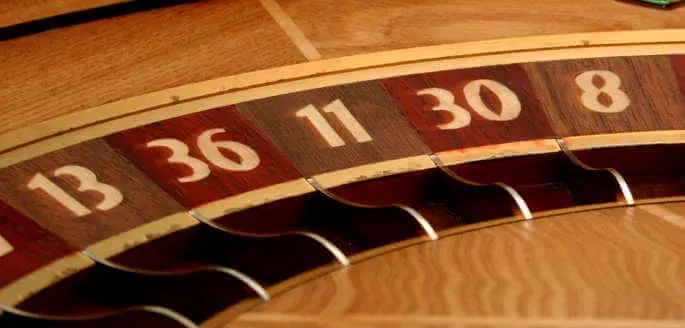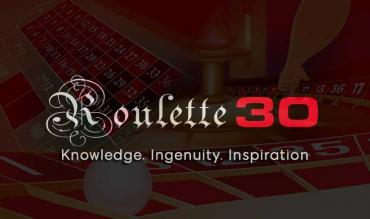
A revealing discussion. In my opinion it is a great example of the dichotomy between theorists, who know the equations well and feel the confidence of understanding the game and lateral thinkers, who will try to find hints in the most unexpected places.
Kav:
I would like to see more actual players in the forums instead of excel players.
I think collectively we have too much theory and lack gambling experience.
If you ask me who I’d like spent an hour talking to, a gambler or a mathematician, I’d chose the former – more to learn.
Bayes:
Do you mean the gambler has more to learn? ?
In my opinion, there are too many gamblers here and not enough mathematicians. And why do you assume that they are mutually exclusive? A gambler who knows nothing about probability isn’t a very good gambler, he would instead rely on luck. Which is fine, most gamblers are recreational and are in it for a fun night out and the social event. Not knocking that, but personally, I’m not particularly interested in reading “tales from the trenches” or anecdotes about what happened in some casino or other on a gambling forum (isn’t that what you do when actually in the casino and chatting to the guy standing next to you at the roulette wheel or whatever?).
In my opinion, a gambling forum should be about systems, principles, ideas, and yes, mathematics and software tools. I hate to bring up such a loathsome subject, but apart from such prerequisites as discipline and mental attitude, gambling is mostly about numbers, so it’s puzzling to me how anyone could complain that there is too much mathematics and “theory” on a gambling forum.
I keep reading about this apparent gulf between theory and the “reality” of playing, but it doesn’t exist. Laplace, who was a big figure in the development of probability theory, said that “probability is common sense reduced to calculation”, and he was right. Back in the 17th Century, gamblers wanted to know the odds of certain events in dice games, they were confused because the mathematicians had calculated odds which were at variance with their experience, and it turned out that the mathematicians had got it wrong. Anyone who plays often will pretty quickly learn the probabilities associated with various events (assuming they’re paying attention, which most gamblers aren’t); you do not need to wait for millions of decisions before events converge to approximately their “true” probabilities.
You read all the time on forums about how probability theory is useless because it only applies “in the long run”. This is a myth, as anyone who has actually taken the trouble to investigate will know. Of course, it does depend somewhat on the actual odds in question. Relatively rare events do take longer to “stabilize”, so if you’re betting on a single number, you’d better have a bankroll which takes this into account. Besides, I’d like to know what these people propose as a substitute for probability – luck?, astrology?, karma? In my opinion, that’s a defeatist and lazy attitude and no substitute for hard work and research.
Pure theory does match experience at the tables. The various formulas are developed from first principles; they are not pulled out of a hat and as a result have no connection with what actually happens. This is true whether you are concerned with 10 decisions or 1000, but you need to take variance into account (more theory based on experience).
On the other hand, you don’t actually need any mathematics or theory in order to answer any question in probability or statistics, and in fact some (maybe most) can only be answered by resorting to simulations because the calculations would be too complex, or no formula exists. By “simulation” I don’t necessarily mean by computer either, although that’s by far the most practical way of going about it. This is the empirical approach, and it’s no different from what you’d eventually discover from actually playing the games.
Kav:
- I love “tales from the trenches” if they are true.
- Theory from “praxis” (action) differs. Everywhere. You can’t learn dancing from reading about the steps and you can not learn cooking without getting your hands dirty.
- In physics, no theory is accepted, no matter how well formed or plausible it may be, unless it conforms to experiments. In physics experiment is kind.
- Mathematics is a different story. Mathematics has no experiments. Mathematics is not a “physical science” like biology, physics or archaeology. It is more a way of thinking that has deteriorated by the way most mathematics use it to a way of computing.
- Roulette is a physical system and by that I do not advocate Advantage Play, I just say that there is much more to it beyond mathematics.
- The problem is we do not use “real world experiments” and observation as a basis of our gambling discussion and research. We go the other way around. We begin with theory and assume that reality will follow.
- In all gambling forums, more often than not, mathematics are used as a reason NOT to think. They give you a false sense of security and prevent ingenuity.
- What are the amazing contribution of “theory” so far to the “roulette problem”? Oh yes, I forgot, the realization that the player has -2,7% average expectation. Thank you very much.
- Above all else, what one needs here is “Problem solving ability”. Knowing the math doesn’t make you a good problem solver. Ingenuity and lateral thinking does.
Bayes:
I wasn’t trying to start any flame wars here, just expressing my POV. Of course there’s room in a gambling forum for “tales from the trenches” and casino anecdotes, although I’d like to see more analytical stuff. But Vic’s new sub-forum should cater more to my tastes.
My approach to math is that which an engineer takes: it’s simply a tool, or a sort of “juice extractor” to get the maximum amount of info from data. It’s also the best means we have for dealing with complexity, and since I believe that it isn’t possible to win consistently at casino games with a relatively simple system or method, I find myself using it quite a lot (although that could be in part due to my background).
I agree with you that math is often used as an excuse not to think. But that’s not really “math” in the wide sense (I assume you’re referring to the house edge), it’s more of a club which some people use to bash those who have the temerity to suggest that roulette or other casino games could ever be “tamed” to any extent.
Yes, knowledge without use and application can be sterile, but you have to start with something, and it seems to me that if your intention is to lighten the casino’s coffers you need at least a minimal understanding of probability and statistical concepts, and I’ve seen very little evidence of that in the forums over the years.
Going back to the engineering analogy, an engineer has two main bases of knowledge from which to design his/her products and systems: the laws of physics and mathematics. Of course, there’s more to engineering than that, but at the very least, the engineer has to ensure that his designs don’t violate any laws of physics. In the same way, the casino system player/designer should adhere to the laws of probability, and apply it to the raw material (data) of interest (At this point I anticipate that someone will be drawing parallels with perpetual motion machines :P). There are also some basic techniques and methods for exploring data, looking for patterns and correlations, etc, which are very useful and should be part of the system designer’s toolkit.
The problem is we do not use “real world experiments” and observation as a basis of our gambling discussion and research. We go the other way around. We begin with theory and assume that reality will follow.
I think there’s some misunderstanding of what the word “theory” means in this context. Everyday use of the word is often pejorative; e.g. “that’s ok in theory, but in practice…” so “probability theory” seems to have a similar connotation. But “theory” in a scientific sense means something different: it refers to
“a well-substantiated explanation of some aspect of the natural world, based on a body of facts that have been repeatedly confirmed through observation and experiment.”(Wikipedia)
Which was the point I was trying to make in my posts above. Your statement that “we begin with theory and assume that reality will follow” implies a disconnect between the two, but in probability theory, there is a very close match between “theory” and reality.
The problem with most systems we see on forums is not that they are based on theory, but they are not based on probability theory (which mirrors reality very closely). As I said previously, you don’t actually need any great mathematical skills in order answer any probability or statistical question, but you do need to learn a little programming (more on that when the new forum is up and running).
Above all else, what one needs here is “Problem solving ability”. Knowing the math doesn’t make you a good problem solver. Ingenuity and lateral thinking does.
Agreed, but don’t you think that doing math gives you problem solving ability?, or requires ingenuity and lateral thinking? Math is not something you know, it’s something you do. Just like dancing and cooking, you have to practice it in order to learn it. Programming is not much different from math in that respect, but it’s usually easier for most people, especially those who are intimidated by symbols.
Actually, although probability and statistics are often considered to be branches of mathematics, they are in fact more like philosophy.
Here is another similar discussion about the meaning of past spins.


